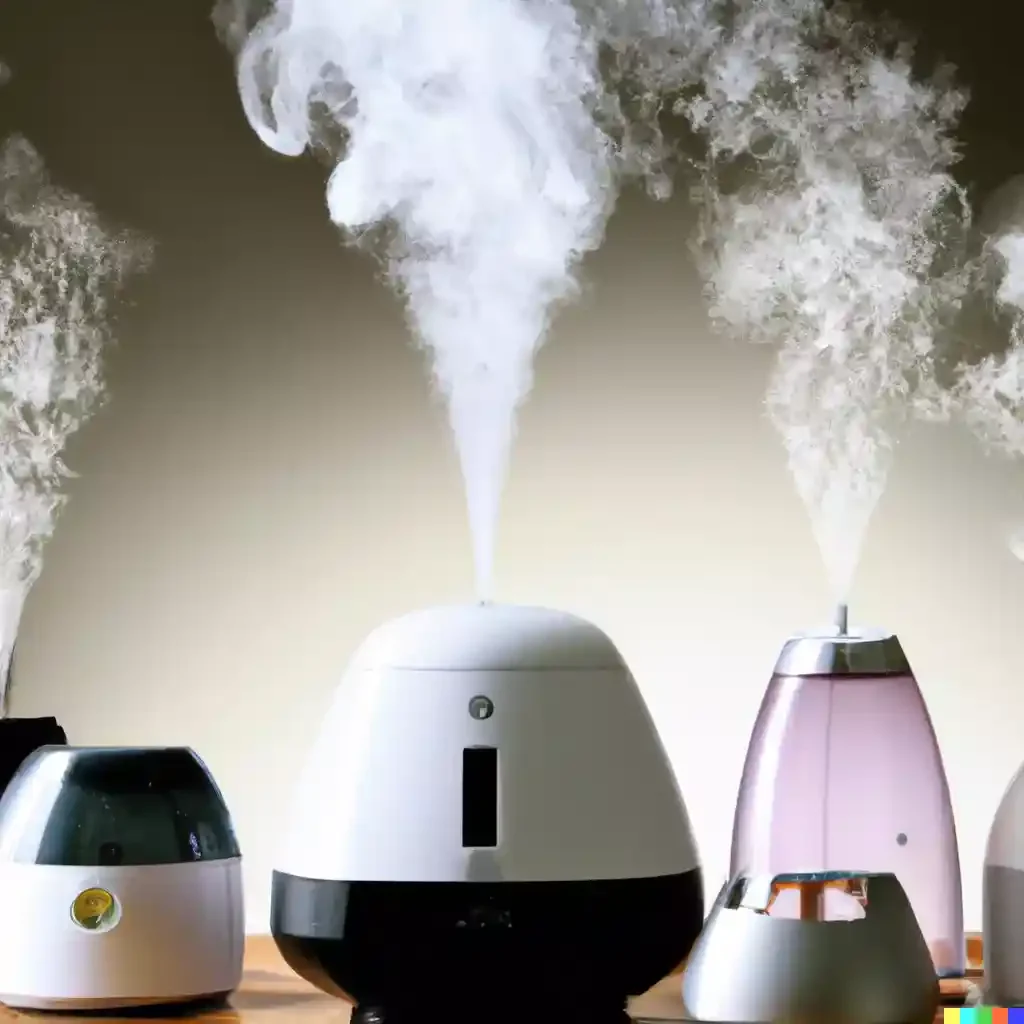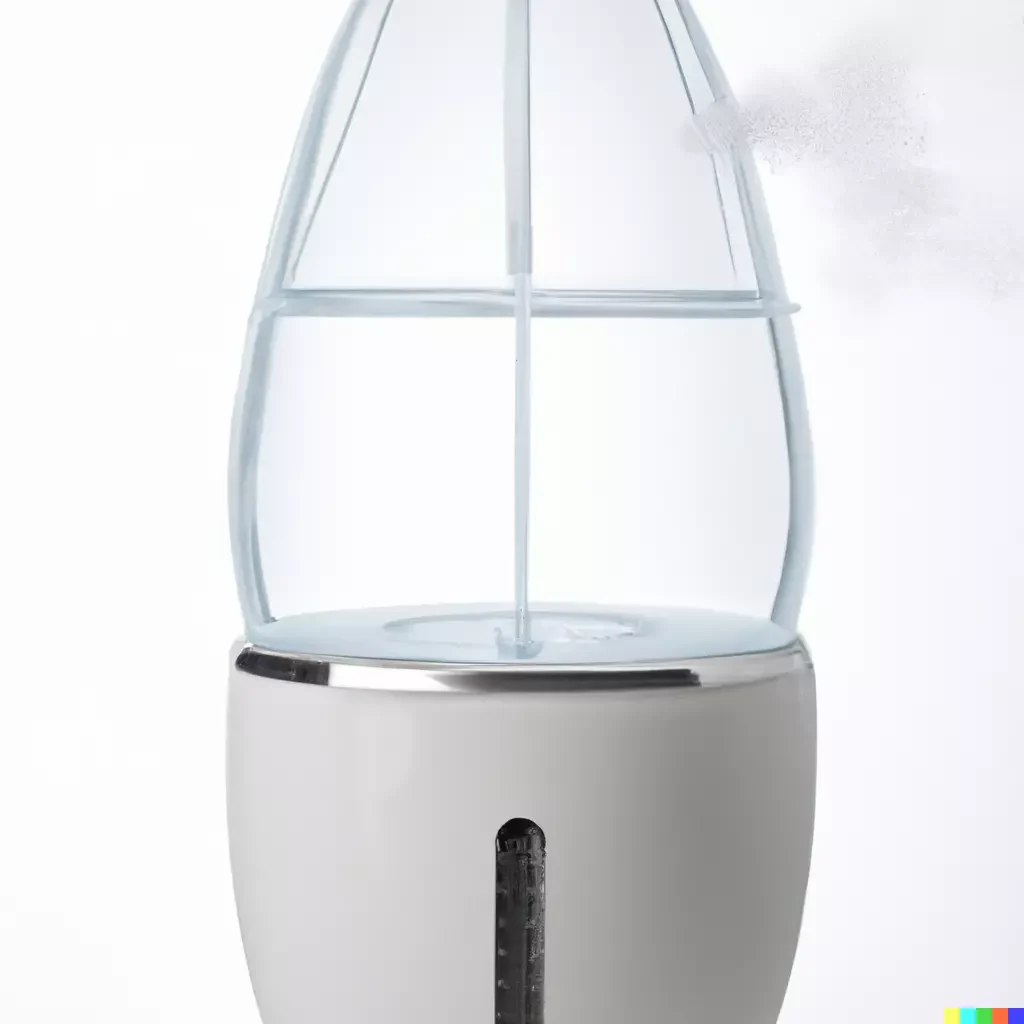No, you do not have to use distilled water in a humidifier, but it is often recommended. Using distilled water can help prevent mineral buildup and the release of minerals into the air.
A humidifier is an essential device for many, especially during the dry months, as it adds moisture to the air and ensures a comfortable environment. It’s crucial to maintain these devices properly to avoid issues such as mineral buildup and the proliferation of bacteria or mold.
Many manufacturers advise using distilled water over tap water because of its purity; it lacks the minerals commonly found in tap water that can cause deposits inside the humidifier and subsequently become airborne. This level of care not only extends the life of your equipment but also ensures that the air you breathe is cleaner, contributing to better respiratory health and overall wellbeing. Keep in mind, following manufacturer guidelines and regularly cleaning your humidifier is key to its effective and safe operation.
Understanding Humidifier Water Needs
When it comes to maintaining optimal moisture levels in a room, humidifiers are essential—especially during dry seasons. But not just any water will do when filling up your humidifier. The type of water you use is crucial for the efficiency and longevity of the device. In this section, we’ll explore the differing types of water you can use, how water quality impacts your humidifier’s performance, and the potential problems associated with certain kinds of water. Choosing the right water for your humidifier not only helps to ensure the unit operates effectively, but also reduces the likelihood of creating additional problems in your home.
Types Of Water: Tap, Distilled, And Demineralized
The main types of water you can use in your humidifier are tap, distilled, and demineralized water. Each kind comes with its own set of benefits and drawbacks:
- Tap Water: It’s conveniently accessible in most homes. However, it can contain minerals and impurities that might harm your humidifier and air quality.
- Distilled Water: This water goes through a boiling process, eliminating most minerals and impurities, making it a safer option for your humidifier.
- Demineralized Water: Similar to distilled, demineralized water has had minerals removed, typically through a filtration process, and is also suitable for humidifiers.
How Water Quality Affects Humidifier Performance
Water quality is a critical factor for maintaining a humidifier’s performance. Hard water containing high mineral content can lead to buildup and can even cause the humidifier to emit a white dust that could trigger allergies or respiratory issues. Conversely, utilizing distilled or demineralized water greatly minimizes the risk of mineral buildup and the emission of unwanted particles into the air.
Potential Problems With Using Tap Water In Humidifiers
While tap water is often the most straightforward choice, it can pose several issues for humidifiers and health:
- Mineral Buildup: Minerals in the tap water can accumulate inside the humidifier, affecting its efficiency and causing it to work harder, leading to increased wear and tear.
- White Dust: Small mineral particles can become airborne and settle as a fine white dust throughout the room, which might not be suitable for those with respiratory sensitivities.
- Microbial Growth: Tap water may contain microorganisms that, when dispersed by the humidifier, could promote the growth of mold and bacteria in the environment.
To conclude, the type of water you use in your humidifier has a tangible impact on both the device and your indoor air quality. Distilled or demineralized water is highly recommended to extend the life of your humidifier while providing a safe and clean humidification experience.
Distilled Water’s Role In Humidifiers
Understanding the importance of the type of water used in your humidifier is crucial for both the longevity of the device and the quality of the air you breathe. Distilled water is often recommended by manufacturers and experts alike, but what makes it the superior choice?
Benefits Of Using Distilled Water
Distilled water offers several advantages when used in humidifiers:
- Mineral Deposit Reduction: Distilled water has had its minerals removed, which means fewer deposits are left in the humidifier, leading to a longer lifespan for the device.
- Cleaner Mist: Without impurities, the mist emitted is cleaner, which can be beneficial for those with allergies or respiratory issues.
- Reduced Bacterial Growth: Minerals in non-distilled water can provide a breeding ground for bacteria. Using distilled water helps to inhibit this growth.
Comparing Distilled To Other Types Of Water
| Water Type | Pros | Cons |
|---|---|---|
| Distilled | No minerals, prevents scaling and bacteria growth. | Costs more than tap water. |
| Tap | Readily available and inexpensive. | May contain minerals and impurities that can harm the humidifier and health. |
| Spring/Bottled | Can have a natural mineral balance. | Potential for scaling, and plastic bottle waste is an environmental concern. |
| Demineralized/Softened | Lower mineral content than tap water. | May still contain enough minerals to cause deposits. |
Addressing Common Myths About Distilled Water Usage
There are several misconceptions about using distilled water in a humidifier. Let’s address these myths:
- Distilled Water Isn’t Necessary: While a humidifier can operate with tap water, the benefits of using distilled water can significantly outweigh the convenience of using tap water.
- All Bottled Waters Are the Same: Not all bottled waters are created equal. Unlike distilled water, some may still contain minerals that can lead to scale buildup.
- Distilled Water Is Only for High-End Humidifiers: Any humidifier can benefit from using distilled water, regardless of its price or features.
Evaluating Water Types For Your Humidifier
When it’s time to fill your humidifier, you might simply reach for what’s most convenient: tap water. But have you ever paused to consider if this is the best choice for your device and your health? Different types of water can have diverse effects on both the humidifier’s performance and the air quality in your home. From distilled water to well water, each option brings its own set of variables to the mix. Choosing the right variety is crucial for ensuring your humidifier operates efficiently and maintains a healthy indoor environment.
Factors To Consider When Choosing Water For Your Humidifier
Selecting the optimal water for your humidifier involves understanding several factors. First and foremost, you should prioritize:
- Mineral Content: High mineral content can lead to ‘white dust’ and the build-up of scale within the device.
- Purity: Impurities in water can become airborne and potentially affect respiratory health.
- Humidifier Type: Some humidifiers are designed to work specifically with certain types of water.
- Local Water Hardness: The hardness of your tap water may dictate whether you need to use distilled or demineralized water instead.
Long-term Effects Of Various Water Types On Air Quality
Diligently evaluating the impact of different water types on your indoor air quality is a responsible step for any humidifier owner. Long-term use of inappropriate water can introduce unwanted elements into the air. Notably:
| Water Type | Positive Effects | Negative Effects |
|---|---|---|
| Distilled | Minimal impurities, reducing airborne contaminants | Potentially higher cost and environmental footprint from production and packaging |
| Tap | Convenient and cost-effective | Varied mineral content can cause ‘white dust’ and scale build-up, potentially harming the device and affecting individuals with respiratory issues |
| Demineralized | Lower mineral content than tap water, less ‘white dust’ | Still may contain other impurities if not properly processed |
Using distilled water in your humidifier is often recommended by manufacturers due to its low mineral content, which minimizes both scale buildup and the release of minerals into the air. It’s a near-pure option that can help maintain your humidifier for long-term use, ensuring cleaner air and a healthier home atmosphere.

Credit: theberkey.com
Cost Vs. Benefits Of Distilled Water In Humidifiers
When considering the use of a humidifier, especially during those dry months, the type of water you use can significantly affect not only your health but also the longevity of your device. Distilled water is often recommended for optimal performance, but with varying costs, is it truly beneficial for you and your humidifier? Let’s break down the financial implications alongside the potential health and equipment benefits of using distilled water.
Analyzing The Cost-effectiveness Of Using Distilled Water
Using distilled water in your humidifier might seem costly upfront compared to tapping into the seemingly endless supply of tap water. But the real question of cost-effectiveness revolves around the long-term impacts on your device. Distilled water is free from minerals that can build up and cause malfunctions over time, potentially saving you from frequent repairs or replacements.
- Lower maintenance costs due to reduced mineral buildup
- Reduced likelihood of needing repairs or part replacements
- Extended life span of your humidifier
Long-term Savings And Equipment Longevity
Consider this—a well-maintained humidifier can last for years. The initial investment in distilled water can lead to fewer deposits within the machine, safeguarding its internal components. This preventive care translates into concrete long-term savings with fewer replacements and a more efficient device.
| Water Type | Cost Over Time |
|---|---|
| Distilled Water | Higher initial cost, lower maintenance costs |
| Tap Water | Minimal initial cost, higher likelihood of increased maintenance |
Health Implications Of Distilled Versus Non-distilled Water
The health benefits of using distilled water in your humidifier cannot be overstated. This type of water is devoid of impurities that can be dispersed into the air and potentially inhaled. This vital difference can minimize your exposure to harmful substances and reduce the risk of respiratory issues.
- Reduced risk of airborne pollutants
- Prevention of microbial growth associated with standing water
- Decreased potential for allergic reactions or asthma attacks
Maintaining Humidity And Health
Maintaining optimal humidity in your home is key for comfort and health, especially during the dry months. Humidifiers play a pivotal role, but their effectiveness and the quality of air they disperse hinge upon regular maintenance and the type of water used. Let’s dive into the details and best practices to keep your air humid and your environment healthy.
Best Practices For Humidifier Maintenance
Keeping your humidifier in top condition is crucial to ensure it works effectively and safely. To maintain hygiene and performance, adhere to the following best practices:
- Clean your humidifier regularly, at least once a week, to prevent mold and bacteria build-up.
- Replace filters or wicks as recommended by the manufacturer to avoid mineral deposits and clogs.
- Ensure that all parts are dry before storage to impede microbial growth.
- Consult the user manual for model-specific maintenance instructions.
The Role Of Water Quality In Maintaining A Healthy Environment
The water used in a humidifier greatly affects both the air quality and the device’s longevity. Distilled water is often recommended because it is free from minerals and impurities that can promote bacterial growth and can cause mineral buildup in your device, potentially reducing its lifespan.
- Using distilled or demineralized water leads to cleaner mist output and a healthier breathing environment.
- Minerals in tap water can create a white dust around your room, which distilled water prevents.
- Always consult your humidifier’s manual as some units come with built-in filters that handle minerals from tap water.
How Often To Change The Water And Why It Matters
Stagnant water in humidifiers can become a breeding ground for unwanted organisms. To maintain a healthy home environment, ensure to:
- Change the water daily, preferably using distilled water to reduce the potential for microorganism growth.
- Empty the tank, wipe it dry, and refill with fresh water before each use.
- Avoid overfilling the tank to prevent the growth of microorganisms.
Consistently replacing the water doesn’t just keep the air clean but also protects the integrity of the humidifier, ensuring optimal functionality over time.
Frequently Asked Questions For Do You Have To Use Distilled Water In A Humidifier
Can You Use Tap Water In A Humidifier?
Using tap water in a humidifier is possible, but not ideal. Minerals from hard tap water can build up in the machine, leading to deposits that can promote bacterial growth and decrease efficiency. Distilled water, being mineral-free, is the better choice for ensuring a clean, efficient humidifier operation.
What Is The Best Water To Use In A Humidifier?
The best water to use in a humidifier is distilled water. It is free from minerals and impurities that can cause buildup and bacterial growth in the humidifier. This ensures cleaner mist output and reduced likelihood of white dust or mineral deposits around your device.
Is Distilled Water Necessary For All Humidifiers?
While not all humidifiers strictly require distilled water, it is strongly recommended to extend the life of the device and maintain optimal performance. Distilled water minimizes mineral buildup and microbial contamination, common issues faced when using regular tap water.
Does Using Distilled Water Improve Humidifier Performance?
Yes, using distilled water can improve humidifier performance. It prevents mineral scale and buildup that can clog the system, ensuring efficient operation. Additionally, it provides a cleaner mist without dispersing unwanted minerals into the air.
Conclusion
To sum up, distilled water isn’t a must for humidifiers, yet it’s beneficial. By using distilled water, you enhance performance and prolong your device’s life. Keeping minerals and impurities at bay means cleaner mist and fewer maintenance headaches. So for optimal humidifier health, distilled water is a wise choice.





